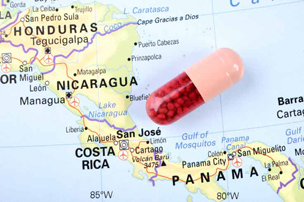CAFTA, Intellectual Property, and Transnational Mobilization for Access to Medicines in Central America
Date & time
Location

Lecture by Angelina Godoy, Helen H. Jackson Chair inHuman Rights and Director, Center for Human Rights, University of Washington
Abstract:
In recent years, the application of intellectual property (IP) to pharmaceutical products has generated increasing controversy in many contexts around the world. Like other parts of Latin America, Central American countries were required to introduce reforms to their IP laws under the terms of the WTO's TRIPS Agreement, and later by the ratification of their trade agreement with the United States, which required yet stricter provisions. In the context of discussions generated by the US-Dominican Republic-Central America Trade Agreement, health advocates argued that the new IP rules threatened developing countries' ability to protect public health. While campaigns against CAFTA were ultimately unsuccessful in stopping the agreement, Godoy argues that they did achieve some important gains, and helped set the stage for subsequent struggles in South America. She also believes that they also offer important insights into the strengths and limitations of transnational advocacy for health rights in the context of IP reforms.
Biography
Angelina Snodgrass Godoy is Helen H. Jackson Chair in Human Rights at the University of Washington in Seattle. A sociologist by training (MA and PhD, UC Berkeley, 2001; BA Harvard 1994), her research focuses on human rights in Latin America, especially Central America. She is the author of Popular Injustice: Violence, Community and Law in Latin America (Stanford University Press, 2006) and numerous articles and book chapters. In recent years, she has conducted research on intellectual property rights and access to medicines in Central America; on water rights and natural resource management in rural Guatemala; and on torture and impunity in El Salvador.
